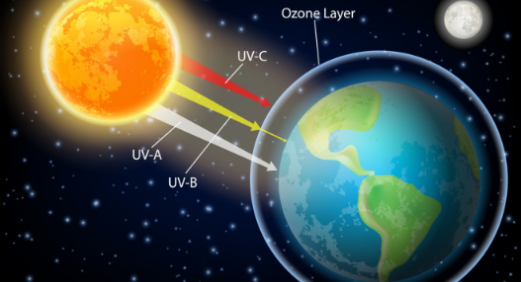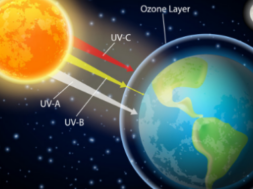
Atmosphere: World observes Ozone Day on Thursday
Avya Mathur
New Delhi: Many countries across the globe observed World Ozone Day on Thursday to commemorate the 1987 Montreal Protocol passed under the auspices of the United Nations for preserving the ozone layer in the Earth’s atmosphere.
The ozone layer comprises the pungent gas ozone (O3), commonly found in the stratosphere that shields the biosphere underneath by absorbing the harmful ultraviolet (UV-C and UV-B) radiations emitted from the Sun.
The thinning layer of ozone was discovered in 1985 over Antarctica. The scientific depletion of the layer led to the adoption and signing of the “Montreal Protocol on Substances that Deplete the Ozone Layer” by 28 UN members in the Vienna Convention on March 22, 1985.
The Protocol was drafted on September 16, 1987.
The Montreal Protocol aims to protect the ozone layer by taking measures to control and curb global pollution and consumption of substances like Chloro Fluoro Carbons (CFC), Dichloro-Diphenyl-Trichloroethane (DDT), and Hydrochlorofluoro Carbons (HCFC) that trigger the depletion of the layer.
Some of the practices that protect the ozone layer include:
- Refrain from consuming threatening substances like CFCs, HCFCs, Halogenated Hydrocarbons, Methyl Bromide, and Nitrous Oxide;
- Conduct inspection and maintain electronics at regular intervals as these appliances over 10-15 years emit more Ozone Depleting Substances (ODS).
- Recover ODS from Refrigerators and Air Conditioners before disposal. Handled by a technician, the ODS should be recycled to prevent atmospheric release.
- Use of eco-friendly products and purchasing energy-efficient appliances.
- Opt for public transportation and carpool instead of private transport to reduce pollution and carbon footprint.
- Reuse and Recycle non-biodegradable waste like plastics and use compost for manure.
This year the Protocol aimed to slow down climate change and boost the energy efficiency of the cooling sector by replacing HCFCs and redesigning refrigerators and ACs to consume less electricity and lesser impact on climate change.













